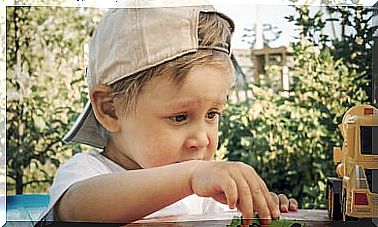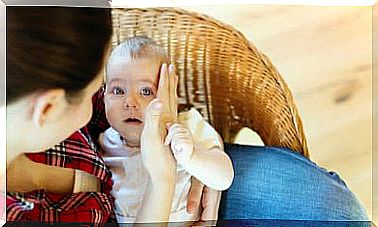5 Emotional Wounds Of Childhood And Their Persistence

There are issues that have the power to leave childhood emotional wounds that linger into adulthood. The sequelae can be more or less noticeable, as the case may be.
In general, people forget many of the situations they experienced in their childhood. For example, the first day of school or the first time you had a bike ride.
However, it is more difficult to forget that occasion in which you suffered humiliation or were the victim of an injustice. These emotional wounds often significantly affect the growth of people, in the psycho-emotional aspect. And they are not only capable of provoking fear, mistrust and fear over the years.
They can also prevent the establishment of healthy bonds as well as good social interaction, in general.
The emotional wounds of childhood do not have to be permanent. Fortunately, many have a solution and can be healed through psychological therapy and the support of loved ones.
The 5 emotional wounds of childhood
Fear of abandonment
Almost all people are afraid of abandonment. Not just from your partners or friends; also of their relatives, pets and, even, those people with whom they do not have a strong bond.
People suffer from this dependency, they also have to endure the fear of being rejected. Reason why barriers are created to prevent other people from approaching you and causing harm in one way or another.
This fear usually arises in those people who were abandoned during their childhood, even if it was just because of a mistake. This wound is usually not easy to heal, and to do so you must have an internal dialogue with yourself and begin to work on the trust you have in others.
Fear of being rejected
Like the fear of abandonment, the fear of being rejected is one of the deepest emotional wounds of childhood that often affects people, and it involves not only the rejection of other people, but also the rejection of yourself.
This fear could have appeared due to various factors, such as rejection by parents, family, friends or siblings. This only generates negative thoughts associated with rejection, being unwanted and the erosion of self-esteem.
People who suffer from this fear often feel unworthy of affection and understanding ; thereby isolating themselves from the people around them. To figure it out, they will need to start making decisions for themselves.

Fear of humiliation
The wound of humiliation is usually generated in those people who felt disapproved and criticized by strict mothers during childhood. Especially in those cases in which they were accused of being clumsy, bad, immature or heavy. So their self-esteem was destroyed.
This often causes the development of a personality dependent on what others say and even the creation of a protective shield for defenses that have not yet been presented.
In order to overcome this type of situation, it is necessary to work on independence, freedom and personal understanding, thus letting go of fears and fears.
Fear of betrayal
The fear of betrayal is another of the most common emotional wounds of childhood; and generally it usually arises in those children who were betrayed by their parents after the breach of promises.
In this way, a situation is promoted that brings with it great mistrust, as well as envy and unhealthy relationships.

Being the victim of a betrayal during childhood often causes this person to develop a controlling personality. Although these people are aware of their mistakes and problems, they do not seem to have the slightest intention of changing.
To achieve this change, you only need to work on different aspects such as:
- Patience.
- The tolerance.
- Knowing how to live.
- The meditation.
- Understand and tolerate mistakes.
- Learn to delegate responsibilities.
Fear of injustice
The fear of injustice is usually generated if the parents are cold or authoritarian, which makes the parenting and growth process full of demands and without any margin for error. In this way the person feels useless and incompetent.










